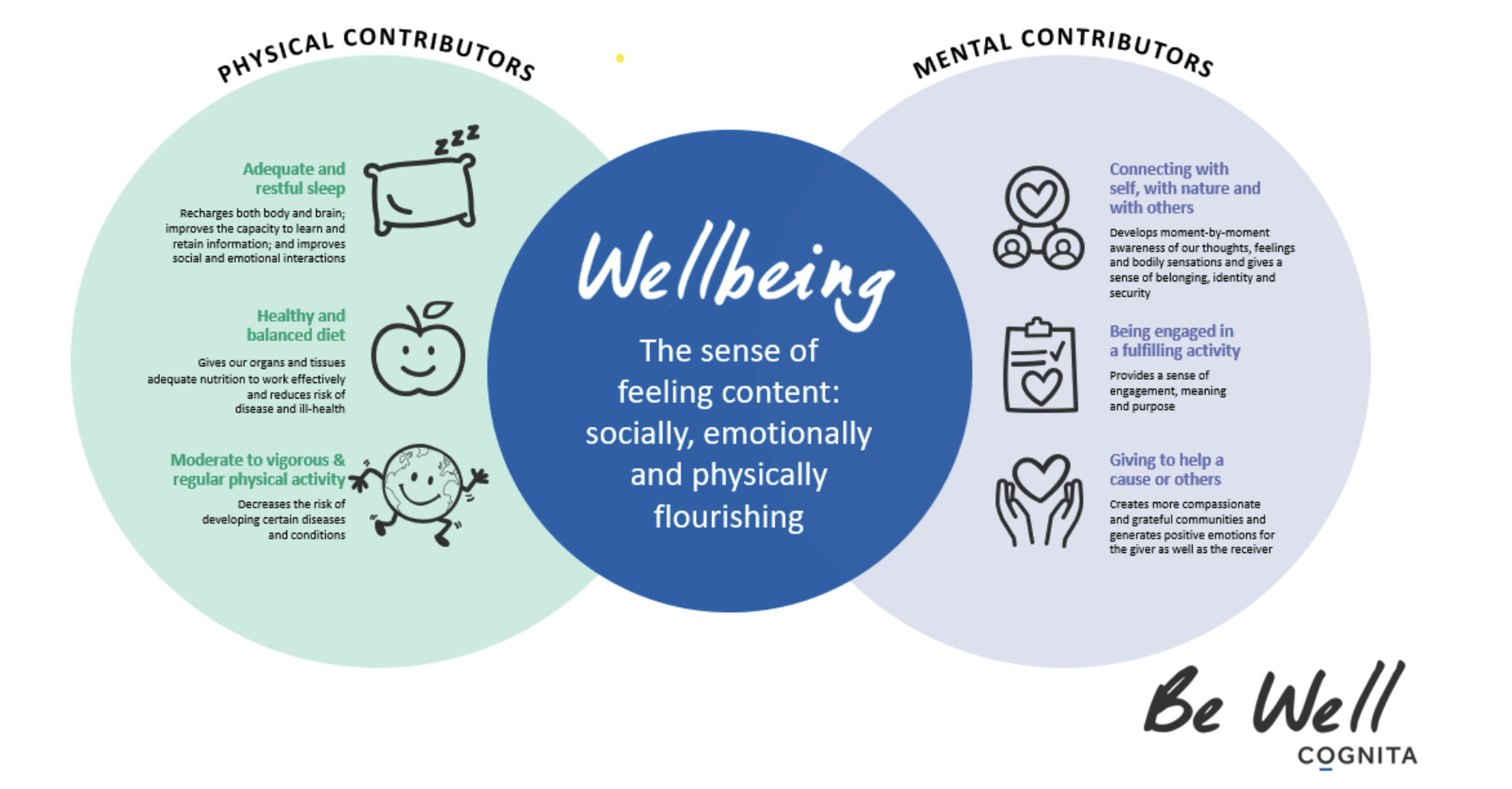21 September 2023
A focus on Digital Wellbeing
If you walk into a Cognita school, from London to Santiago, on 29 September, you’ll see communities totally engaged and connecting with one other, inside and outside of their classrooms. They will be celebrating the fifth annual Global Be Well Day (GBWD) – a tradition that embodies our year-long focus on student wellbeing.
GBWD highlights our holistic commitment to each student’s whole self. It’s an energising day where students focus on their physical and mental health, which are the building blocks for becoming resilient, adaptive and optimistic lifelong learners. The day sets the tone for a year where students thrive. On this special day, you’d see happy students learning the skills to take care of themselves and support each other. The day celebrates our belief that wellbeing is a priority, empowering students to grow into their best selves.
Global Be Well Day started five years ago, and we’ve previously shone a spotlight on key areas such as nutrition, exercise, connections, and giving back, all based on the Contributors of our Be Well Charter. This year, we’re focusing on the important topic of Digital Wellbeing.
For our students, Digital Wellbeing is about using technology in a healthy way – for example, connecting with others while understanding how to express themselves online in a positive way. It’s about building their confidence both on and offline. Most of all, it’s about developing self-control and balance with their device usage, so they can make good choices now and in the future.
What does Digital Wellbeing look like for our students? It varies by age – but for all ages, it’s about helping students become informed, responsible technology users. We want to equip our young people with the skills to make healthy and positive decisions about how they interact, how much time they spend online and in front of screens, and how they feel about themselves and the world.
How does this connect back to Cognita’s Be Well Charter? Research has made it clear that technology impacts areas such as sleep, connecting, and emotional health. With more students getting personal devices earlier on in life (and keeping them in their bedrooms), it’s crucial we guide and instil self-regulation from an early age. That way students grow up knowing they have options – and the confidence to make choices that support their overall Wellbeing.

As a globally connected school system, Cognita’s Wellbeing strategy is informed by the latest research. They recently teamed up with Wellbeing experts to publish a global Be Well report called “How to Empower Digital Agency in Students, with Students and for Students.” The report looks at how we can involve students in helping educators, parents and technology companies create a healthier digital world. It pulled together findings on adolescent brain development and the neuroscience of emotions. One key finding was that students always need to have a voice and be involved in any effort to help them thrive online. You can access the full report, here.
Research by the OECD highlighted that “Digital society requires equipping young adults with new types of emotional and cognitive skills.” (1) Global Be Well Day is just one part of our year-round approach to support students in reflecting on and making decisions about their Wellbeing in our digital world.
We want to give students the knowledge and power to develop self-awareness and responsibility with technology. By equipping them with the latest understanding, we allow them to shape their own healthy digital lives and, importantly, have a say in how technology can help them learn, thrive and ´be-well´ in their lives.
Jon Coward MEd is the School Improvement Partner based in Barcelona, Spain. He supports our schools across Spain and Italy as well as being part of the dynamic Global Student Wellbeing Network connecting Europe, Asia, Middle East and Latin America.
(1) https://www.oecd.org/digital/well-being-in-the-digital-age.pdf

